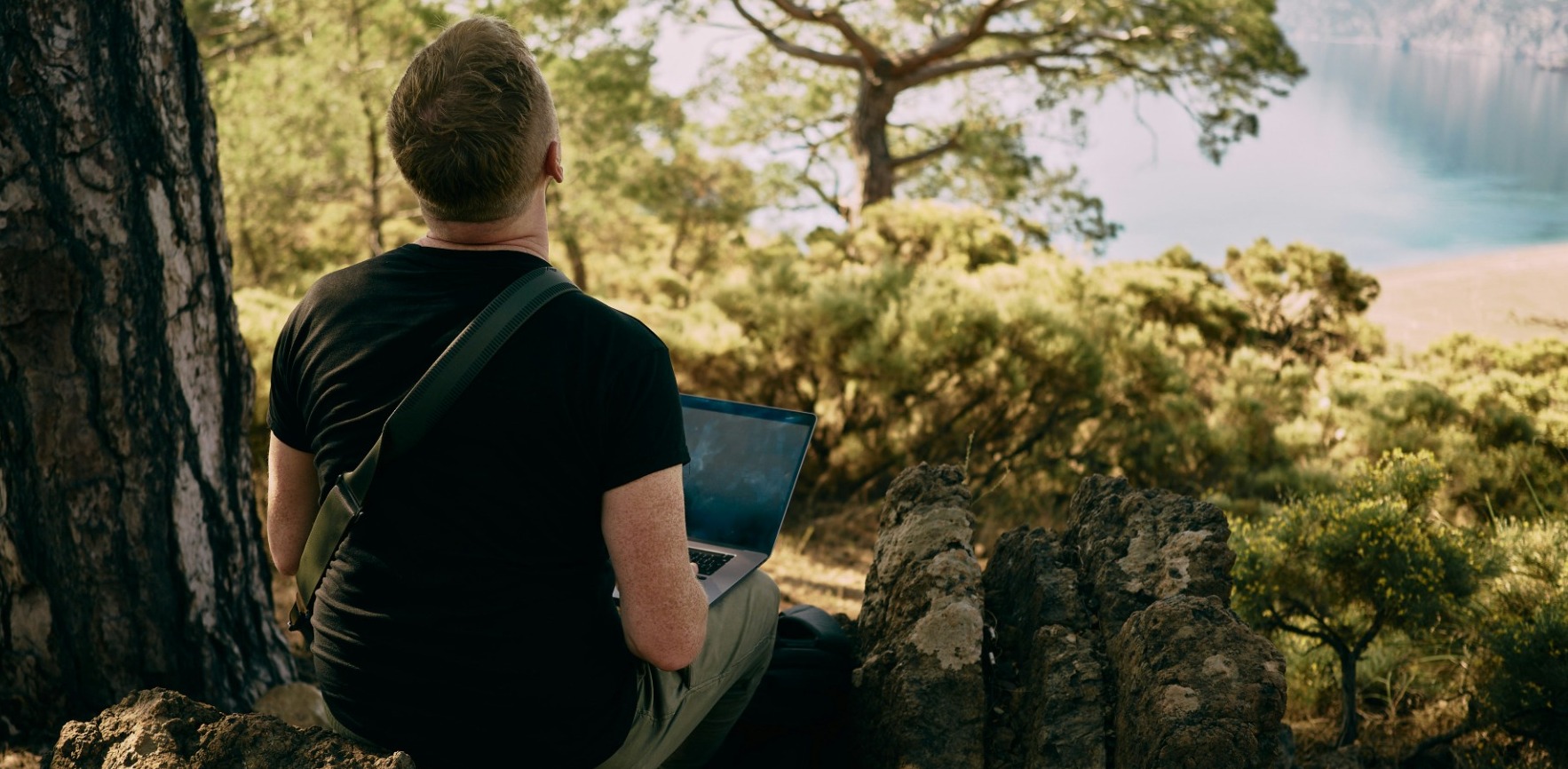
Cabo Verde's Digital Nomad Reality
Cabo Verde launched its Remote Working Programme (CaboWork) to attract digital nomads with a simple pitch: work from a politically stable archipelago with year-round sun, pay zero income tax on foreign earnings, and enjoy lower costs than Europe.
The results tell a different story. By mid-2023, only 194 people had applied. Of those, just 97 submitted complete applications. Thirty-five were rejected. Six dropped out due to processing delays.
The programme has failed to attract significant numbers. Understanding why reveals what really matters for remote work locations—and it isn't tax rates.
The Visa: What You Actually Get
The Remote Working Programme offers one of the cheapest digital nomad visas globally, but cheapness hasn't translated to popularity.
Key Features:
- Duration: 6 months residence, renewable once (12 months total)
- Cost: €20 visa fee + €34 airport fee = €54 total (roughly $60)
- Tax benefits: Zero income tax on foreign earnings, no capital gains tax, no withholding tax
- Travel: One exit and re-entry permitted during initial 6-month period
Requirements:
- Income: €1,500 average monthly bank balance over past 6 months (individual) or €2,700 (family)
- Employment: Must work remotely for employers/clients outside Cabo Verde—no local employment allowed
- Eligibility: Citizens from Europe, North America, Portuguese-speaking countries, and ECOWAS nations
- Documentation: Health insurance, valid passport, clean criminal record
- Processing: Typically two weeks, though delays are common
Compare the €54 cost with Barbados ($2,000), Anguilla ($2,000), or even Portugal's more complex D7 visa. On paper, Cabo Verde looks like exceptional value.
But price isn't everything.

.
Why Digital Nomads Aren't Coming yet
The government expected thousands of applications. They built coworking spaces, established community managers, and created the Technology Park with training centres and conference halls. Yet barely 200 people applied. Six fundamental problems explain why.
1. Internet Speed: The Deal-Breaker
Average broadband speed in Cabo Verde ranges from 8 to 17.84 Mbps depending on location. For context, modern remote work typically requires:
- Video calls: 3-4 Mbps minimum, ideally 10+ Mbps for quality
- Cloud applications: Consistent speeds for real-time collaboration
- File uploads/downloads: 20+ Mbps for efficiency
- Professional standard: 50-100 Mbps expected in established hubs
Cabo Verde's fibre-optic cables—Atlantis II and WACS—connect to Europe, Africa and the Americas. The international trunk infrastructure exists. But last-mile delivery consistently fails. While 4G theoretically covers 54% of the population, actual market penetration is only 11.6%.
Service interruptions are common. Power cuts happen frequently, especially on Sal. When electricity fails, internet fails. And electricity costs 35-40 cents per kilowatt-hour—among Africa's highest rates—making backup generators expensive to run.
Monthly internet costs run $30-60, which seems reasonable until you realize you're paying European prices for speeds that would be unacceptable in most of Europe. For remote workers accustomed to reliable 100 Mbps fibre in Lisbon, Bali, or Mexico City, Cabo Verde's connectivity creates constant frustration.
When your Zoom call freezes during a client presentation, the tax exemption doesn't matter.
2. Community and Infrastructure: Nearly Non-Existent
Cabo Verde's tech ecosystem is embryonic. By 2021, only 38 startups appeared on StartupBlink and 23 on Crunchbase. The digital nomad community is tiny.
Available coworking infrastructure:
- Locations: Primarily Praia and São Vicente
- Costs: €100/month (hot desk) or €150/month (private desk)
- Quality: NomadList ranks both cities "okay" for places to work but "bad" for startup scene
Outside these two cities, dedicated coworking infrastructure barely exists. If you base yourself on Sal or Boa Vista—where 95% of tourists stay because they have the most reliable infrastructure—you're working from your accommodation or cafés.
Contrast this with established hubs:
- Lisbon: Thousands of digital nomads, dozens of coworking spaces, weekly networking events
- Bali (Canggu, Ubud): Massive community, extensive infrastructure built specifically for nomads
- Mexico City/Playa del Carmen: Huge expatriate and nomad populations with thriving scenes
Cabo Verde offers pioneering isolation, not established community. If networking and socialising with other remote workers matters to you—and for most nomads, it does—Cabo Verde won't deliver.
3. Cost of Living: Not As Cheap As You Think
Living costs are lower than Western Europe but nowhere near Thailand, Mexico, or Bali levels. The country imports 80-90% of its food, which drives prices up significantly.
What's expensive:
- Utilities: Electricity at 35-40 cents/kWh; water at €4-7/m³ (desalinated using diesel)
- Food: Imported groceries cost more than in source countries due to shipping
- Accommodation: Quality housing on Sal/Boa Vista commands tourist-market prices
What's reasonable:
- Local dining: A cappuccino costs $1.32; local restaurants are affordable
- Services: Haircuts, local services, domestic labour cost less than Europe
- Local transport: Cheap, though inter-island travel is expensive and unreliable
The minimum monthly salary is €120. But as a foreigner, you'll pay closer to European prices for anything imported or tourism-related. Government sources estimate digital nomads might spend $63 per day compared to $43 for average tourists—but that's still over $1,900 monthly, not accounting for accommodation.
A practical concern: an influx of digital nomads could inflate rental costs in urban centres, making housing difficult for locals earning €120 monthly minimums.
4. Geographic Fragmentation: Beautiful But Isolating
Nine inhabited islands spread across the Atlantic sounds romantic. In practice, it creates daily logistical nightmares.
Inter-island transport challenges:
- Air travel: Domestic capacity dropped 60% in 2021 and 37% in 2022 post-Covid; hasn't fully recovered
- Maritime transport: Delays of 3-6 hours are routine; schedules unreliable
- Future plans: New state domestic airline planned for 2025 with subsidised tariffs (remains aspirational)
If you want to explore Santo Antão's hiking trails, Fogo's volcano, or Santiago's culture, budget extra time and accept schedule uncertainty. Ferries don't run like clockwork. Flights get cancelled.
Most nomads end up staying on Sal or Boa Vista—the resort-focused islands with the most reliable infrastructure but least authentic local culture. The culturally rich islands have limited tourist infrastructure, making long-term stays challenging.
5. Language Barriers
Portuguese is the official language. Cape Verdean Creole (Kriolu) is widely spoken. English is common only in tourist areas on Sal and Boa Vista.
If you don't speak Portuguese, you'll manage in tourist zones but struggle in local contexts. Government bureaucracy, healthcare appointments, legal matters, and daily interactions outside resort areas require Portuguese.
Learning basic Portuguese or Kriolu significantly improves quality of life, but represents an investment many nomads aren't prepared to make—especially when alternatives like Mexico (Spanish, widely spoken) or Thailand (strong English presence in nomad areas) exist.
6. Limited Government Promotion
The government admits it's not actively promoting the programme while it works to resolve challenges. Without marketing, awareness remains minimal.
Successful digital nomad destinations—Portugal, Mexico, Thailand—actively market programmes through partnerships with nomad platforms, influencer outreach, and targeted campaigns. They create visibility, build reputations, and generate momentum.
Cabo Verde built infrastructure but didn't tell anyone about it. When bureaucratic delays caused six applicants to drop out from a pool of just 97 complete applications, word-of-mouth actively worked against the programme.

.
What Cabo Verde Does Well
Despite infrastructure challenges, Cabo Verde offers genuine advantages that shouldn't be dismissed.
Political Stability and Safety
This is Cabo Verde's strongest selling point for those considering Africa. The country is:
- Politically stable: Democratic governance, peaceful transfers of power
- Safe: Low crime compared to West Africa; you can walk around freely
- Rule of law: Property rights respected, contracts enforced
- Covid response: One of the safest destinations in sub-Saharan Africa regarding vaccination rates
If you're considering an African base but worried about security, governance, or legal protections, Cabo Verde delivers European-style stability at African prices (sort of).
Weather and Outdoor Lifestyle
This is where Cabo Verde genuinely excels:
- Climate: 350 days of sunshine annually; temperatures 24-30°C year-round
- Activities: World-class kitesurfing, diving, sailing, hiking (Santo Antão), volcano climbing (Fogo)
- Beach quality: Unspoiled beaches, excellent water sports conditions
- Outdoor focus: If your ideal workday includes surfing before breakfast and hiking after work, Cabo Verde delivers
If you're from Northern Europe and exhausted by grey skies and cold winters, Cabo Verde offers perpetual summer.
Time Zone Alignment
UTC-1 timezone aligns well with:
- Europe: 1 hour behind London, 2 behind Paris/Berlin
- US East Coast: 4-5 hours ahead, allowing some overlap
- West Africa: Perfect alignment for ECOWAS business
For remote workers serving European clients, time zone overlap matters enormously. Morning calls with London or Paris happen during normal hours, not 2 AM wake-ups.
Tax Exemption (With Caveats)
Zero income tax on foreign earnings is meaningful—if your home country honours it.
Important considerations:
- Some countries tax worldwide income regardless of residence (United States)
- Tax residency rules vary by nationality
- You may still owe taxes in your home country depending on citizenship and residence rules
- Professional tax advice specific to your situation is essential
For citizens of territorial tax countries or those who can structure to avoid home country taxation, the exemption provides real savings. For others, it's irrelevant.
Who Should Consider Cabo Verde?
Good candidates:
- Remote workers prioritising weather and outdoor lifestyle over community and nightlife
- People serving European clients needing time zone alignment
- Those comfortable with small expat scenes and pioneering environments
- Portuguese speakers or those committed to language immersion
- People with specific business interests in West Africa or Lusophone markets
- Early adopters patient with developing infrastructure who value being first
Poor candidates:
- Digital nomads prioritising cost savings (Thailand, Mexico, Bali offer better value)
- Those wanting large, established nomad communities for networking and socialising
- People requiring ultra-reliable, high-speed internet for professional work
- Anyone uncomfortable with logistics friction and occasional infrastructure failures
- Short-term visitors (visa minimum is 6 months, making trial difficult)

Mindelo - Sao Vicente island
Quick Comparisons to Established Hubs
Lisbon wins on infrastructure, community, coworking spaces, and European access. Cabo Verde wins on weather and tax exemption.
Bali wins on huge community, much cheaper costs, better internet, and extensive nomad infrastructure. Cabo Verde wins on political stability and European time zone.
Mexico wins on massive communities, excellent food, lower costs, and better infrastructure. Cabo Verde wins arguably on safety.
Canary Islands win on EU membership, infrastructure, flights, and Spanish/European standards. Cabo Verde wins on tax exemption and less tourism crowding.
The Uncomfortable Truth
Cabo Verde's digital nomad programme failed because tax exemptions can't compensate for infrastructure deficits. Digital nomads need reliable internet, community, affordable living, good logistics, and coworking infrastructure. Cabo Verde offers tax exemption, political stability, excellent weather, time zone alignment, and safety.
The mismatch is clear. For the right person—someone prioritising sun, beaches, and outdoor activities over community and infrastructure, willing to tolerate connectivity issues, and able to benefit from tax exemption—Cabo Verde works.
For most digital nomads, established hubs in Portugal, Mexico, Thailand, or Bali deliver better overall experience.
The government's vision is logical: islands can't manufacture goods or grow food, but they can host digital services if infrastructure supports it. The 2.5% corporate tax rate for companies creating 50 jobs is genuinely world-class.
But individual remote workers don't need corporate tax rates. They need internet that doesn't freeze during client video calls, communities for professional networking and social connection, and infrastructure that works reliably day after day.
Until Cabo Verde fixes connectivity, builds community, and improves logistics, even aggressive promotional efforts won't overcome structural constraints. The 194 applications speak louder than any marketing material.
The beaches are beautiful. The sun always shines. The visa costs €54. But your Zoom call will freeze, your groceries will cost a fortune, and you'll be working alone from your apartment because coworking infrastructure barely exists outside two cities.
For some people, that trade-off is acceptable—even attractive. For the thousands of digital nomads who chose Lisbon, Bali, or Mexico City instead, it isn't.

.
